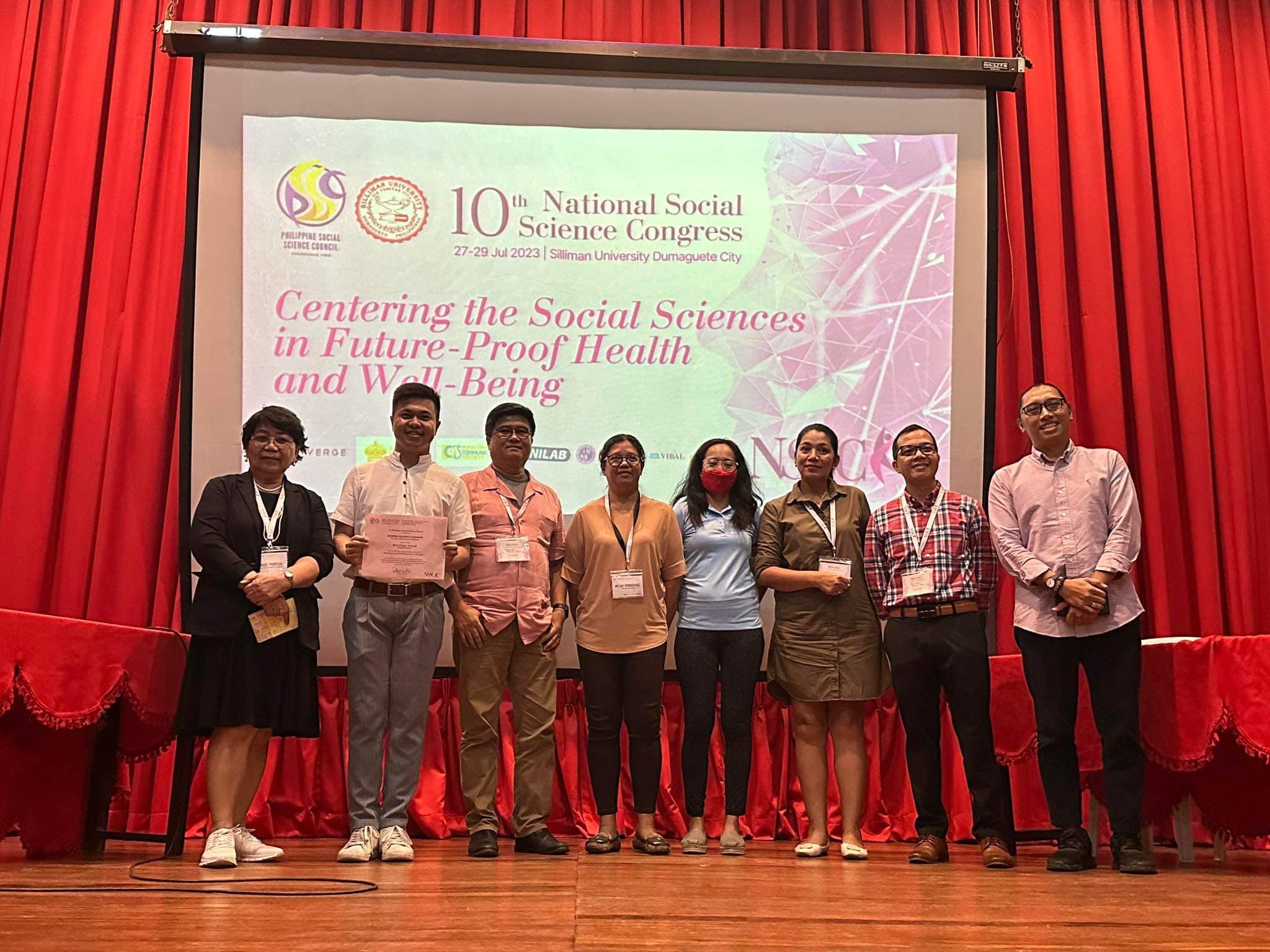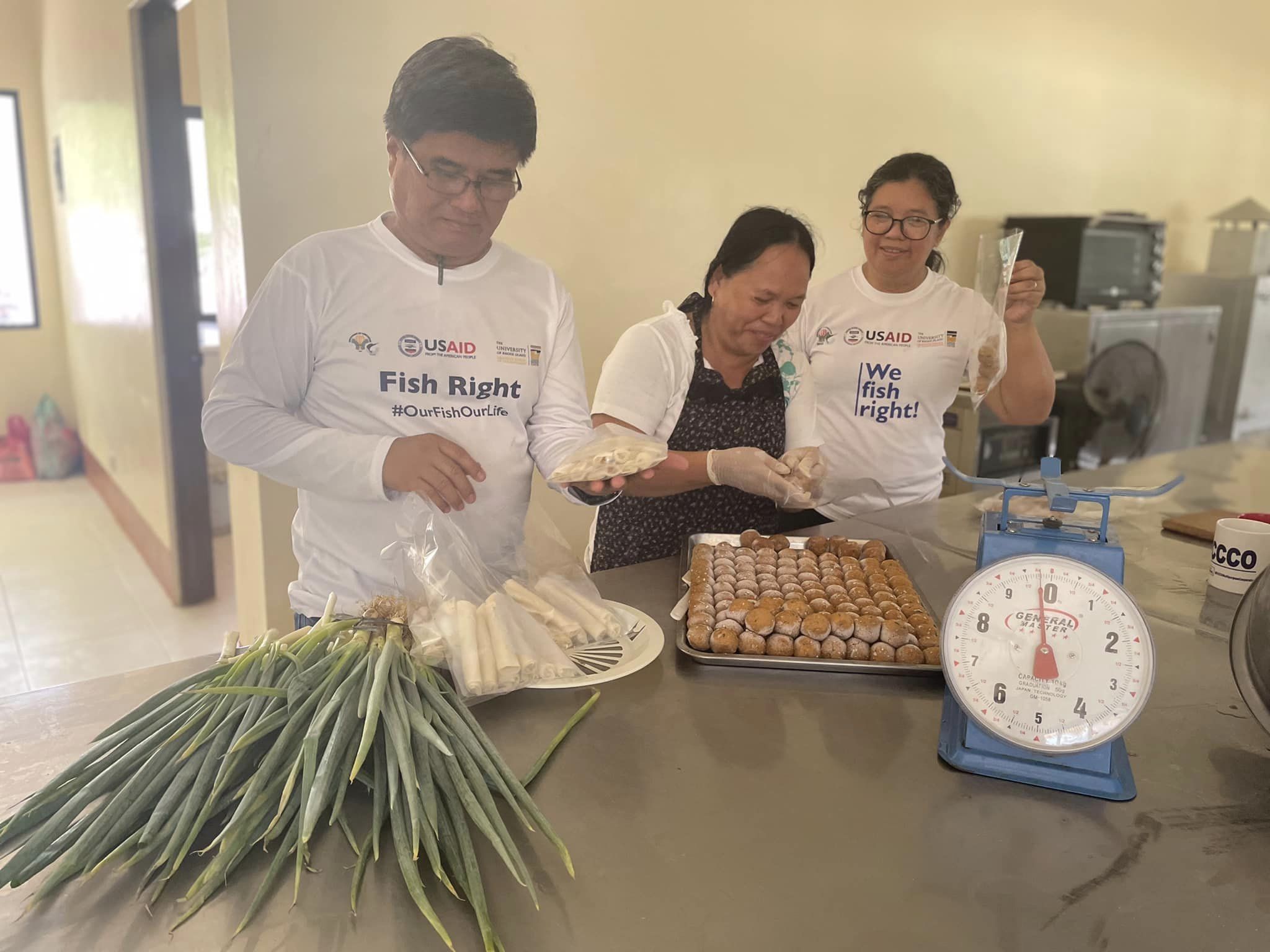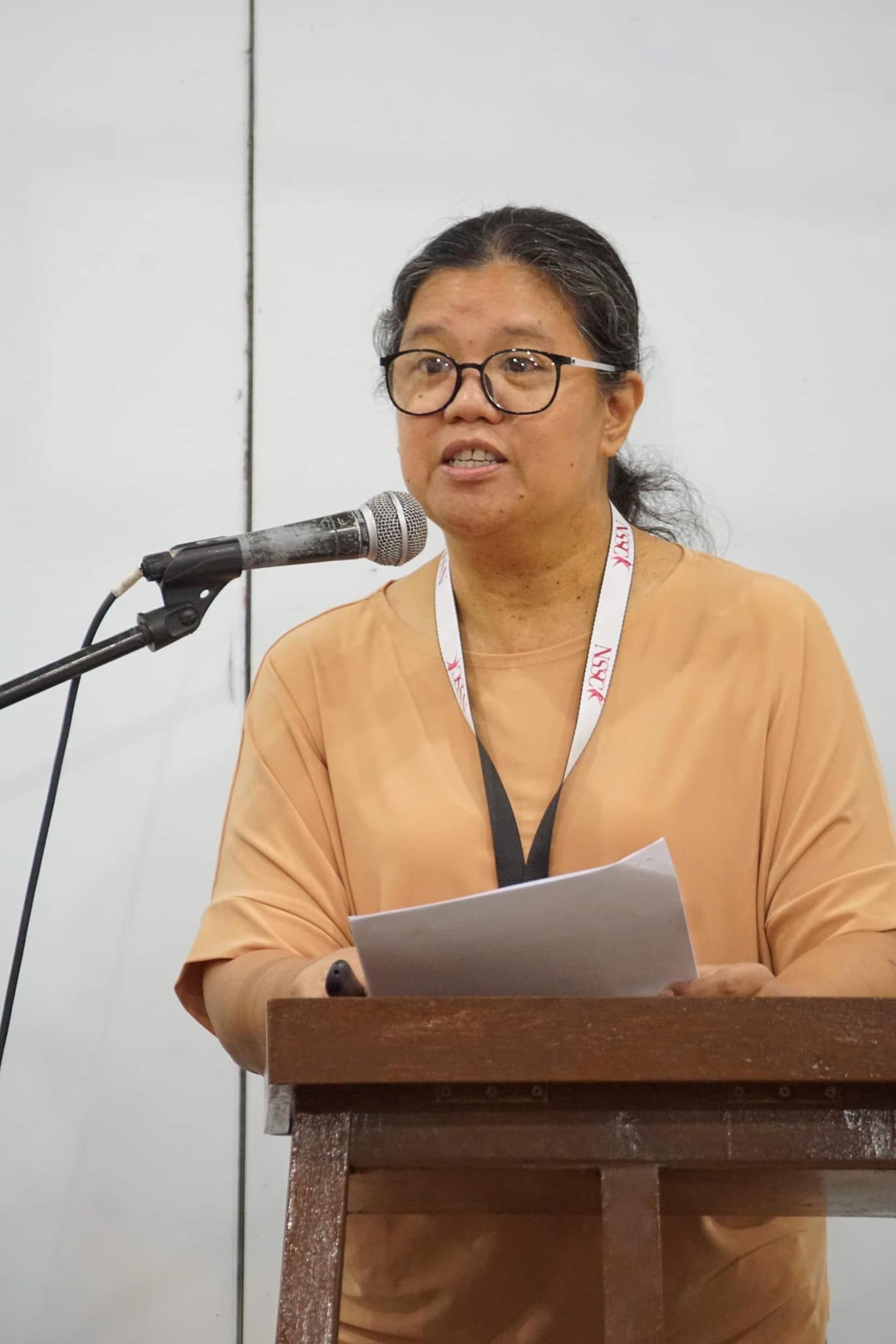
Paper on wives in fisheries by SU researchers gets award in nat’l confab

Dr. Enrique Oracion (third from the right), Silliman University (SU) Research and Innovation Office director; Asst. Prof. Mylah Bomediano (fourth from the right) of the SU Government Affairs Center; and SU student Jerrydith Alpuerto (fifth from the right) receive a certificate of recognition for placing second in the Best Paper competition of the 10th National Social Science Congress (NSSC), July 29, 2023 at the Audio-Visual Theater 1.
The paper titled, “Assisting Wives in Fisheries Economically Adapt and Recover in Crisis Situations in South Negros” by Silliman University (SU) researchers earned second place in the Best Paper competition of the 10th National Social Science Congress (NSSC) held at SU on July 27-29, 2023.
Dr. Enrique Oracion, Asst. Prof. Mylah Bomediano, and Jerrydith Alpuerto co-authored the said paper which was among the 28 entries in the competition.
The paper documented the Fish Tiangge project under the USAID Fish Right Program through participatory action research for a period of one year.
SU was the institutional partner of the program in South Negros which started in 2018 and ended in 2023.
Fish Tiangge
Under the USAID Fish Right Program, a Facebook-based platform called Fish Tiangge was designed to assist fishers, fishers’ associations, and fish traders in virtually reaching potential customers during the closure of ports and public markets because of the COVID-19 pandemic lockdown.
When online transactions had reduced and mobility restrictions relaxed after the government’s massive vaccinations, the wives of fishing households were grouped into 16 clusters, still called the Fish Tiangge project. They were trained and provided start-up capital by various donors—including SU alumni—to engage in fish consolidation and value-adding.
The wives also raised community awareness against illegal, unreported, and unregulated (IUU) fishing and promoted efforts to address climate change impacts on fisheries and their livelihoods, which qualified the Fish Tiangge as a conservation enterprise.
Recommendations
However, the authors noted in their paper that not all clusters similarly performed and sustained their operations because of different strengths, weaknesses, opportunities, and threats.
Four clusters failed to meet the expectations of the project; seven continued to operate and already enjoyed financial benefits; and five clusters already returned the start-up capital which was extended to other clusters.
The authors recommended that monitoring and coaching are needed until deficiencies in the clusters are addressed and the role of wives in sustaining municipal fisheries is enhanced.
With the theme “Centering Social Sciences in Future-Proof Health and Well-Being,” the NSSC gathered about 229 social and health scientists, practitioners, and policymakers to explore challenges and possible solutions to pressing public health issues in the country and Asia.
Organized by the Philippine Social Science Council, the congress aimed to promote the use of a social science lens in post-COVID-19 pandemic recovery efforts.
(With reports and photos from Dr. Enrique G. Oracion, Silliman University Research and Innovation Office director)

Asst. Prof. Mylah Bomediano reads the paper she co-authored with Dr. Enrique Oracion and Jerrydith Alpuerto titled, “Assisting Wives in Fisheries Economically Adapt and Recover in Crisis Situations in South Negros,” in a parallel session during the 10th NSSC.

Dr. Enrique Oracion (rightmost) and Asst. Prof. Mylah Bomediano (leftmost) observes a member of the women’s cluster under the Fish Tiangge project, packing fish products during the research team’s field assessment.


